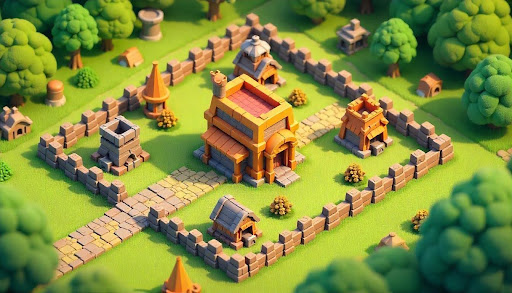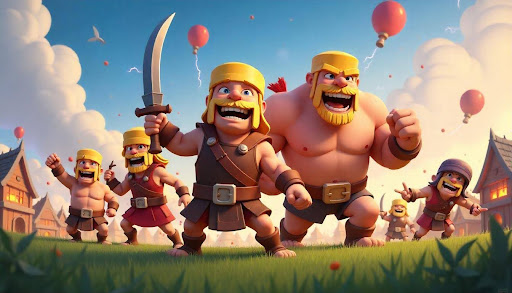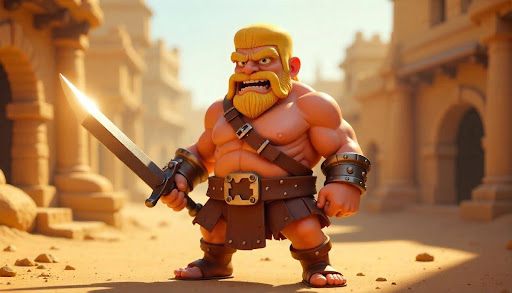Some clans can really stand the test of time!
One of the most known aspects of Clash of Clans is, well, the titular clans themselves. A little after you join the game, the mechanic to join a clan opens up to you, and you have to either create or join a clan. Both giving and receiving help from other clan members in order to overtake different hurdles and even participate in clan wars. One of the first things you will notice while browsing clans is that some seem very active, some very inactive — some that have lots of players and some that are practically empty. Have you ever joined a clan that seemed active, but after just a few days, you will notice the clan starts whittling out of existence little by little? In this article, we will dive into what separates a clan that lasts years and makes an impact on anyone it comes across from a clan that dissolves after weeks. The answer isn’t as simple as having good attackers or frequent war wins. The factors that influence a clan’s longevity are often more human than strategic.
If you want to help your clan grow, you should consider getting a boost from sites like https://skycoach.gg/clash-of-clans-boost/accounts. They will ensure you have the best base possible and any resource you need to win any battle and help out any clan member you want!
Leadership That Evolves With Time
A great clan almost always begins with a strong, motivated leader. But leadership in Clash of Clans isn’t about raw power or shouting commands. It’s about vision and adaptability. The early days of a clan are often driven by a single individual’s energy. They recruit, set rules, keep chat active, and push others toward war. But what separates a temporary leader from a lasting one is their ability to shift roles over time.
As a clan grows, needs change. A good leader knows when to be hands-on and when to step back and delegate. They trust co-leaders, encourage discussion, and make room for others to take initiative. This distribution of responsibility becomes essential when the original leader inevitably gets busier with life or needs a break. Clans that rely entirely on one person are vulnerable. The ones that last turn leadership into a shared culture rather than a single role.
A Culture That Feels Real
It doesn’t really matter how many players your clan has. What makes a clan feel real is what you all share. Things like an active chat where you talk about common likes or an in joke that you all share. Others build a casual and social vibe, where clan chat is always flowing and wars are optional.
What matters is that the culture feels authentic and consistent. It cannot be copied from another clan or forced with excessive rules. It has to happen on its own and cannot be forced. It’s a strategy you all share, a rival clan that you all equally hate. People interacting together is what makes a clan’s bond feel the strongest. This shared identity gives people a reason to stay beyond just loot and stars.
Cycles of Growth and Reinvention
Every clan goes through ups and downs. There will be months of incredible war wins, constant chat activity, and tight coordination. And there will be quieter stretches, where key members go inactive and wars feel like a chore. The clans that survive understand this cyclical nature and don’t panic when engagement drops.
What separates successful clans is their willingness to reinvent themselves during slow periods. Sometimes that means merging with a sister clan. Other times it means dropping to a lower war league to rebuild morale. It might involve reworking rules, creating new donation roles, or changing how wars are assigned. Reinvention doesn’t have to be dramatic — it just has to show that the clan isn’t stuck in the past.
Recognition and Progress Beyond Town Hall Levels
One of the most overlooked ingredients of a long-lasting clan is recognition. People want to feel like their contributions matter. This goes beyond promotions or trophies. It’s about being acknowledged for what you bring to the group, whether that’s consistent war performance, help in clan games, or simply keeping chat positive. 
Smart clans develop informal ways of recognizing effort. Some have internal titles like “War General” or “Donation King.” Others shout out players who clutch a close war or bring in a great new recruit. These little moments of recognition help build loyalty. When a player feels like they are seen, they’re less likely to leave, even during slower periods.
Managing Conflict and Burnout
No clan is free of conflict. There will be disagreements over war strategies, complaints about participation, and personality clashes. The difference between a clan that collapses and one that grows through the tension is how conflict is managed.
Leaders should act as moderator. Defusing any tension and if they find a particularly problematic person then tell them to take a break or kick them out. The ability to preserve peace without alienating members is a delicate skill. Great clans treat conflict resolution as part of the game, not as an inconvenience.
Burnout is another threat. Even the most dedicated players will occasionally feel drained. Great clans don’t guilt-trip members for needing time away. They keep the door open for returns, and often hold onto members’ positions even when they go inactive for a while. This flexibility builds trust and long-term commitment.
Recruitment That Matches the Culture
Many clans struggle with retention because they recruit anyone and everyone, regardless of fit. While there’s nothing wrong with taking chances on new members, a mismatched recruit can disrupt the vibe of a clan. If your clan thrives on coordinated war attacks, a player who never uses both attacks will cause friction. If your clan is casual and friendly, a hyper-competitive newcomer might push too hard and upset the balance.
Clans that last know how to recruit with purpose. They use clear messaging — whether in-game or on forums like Reddit or the game’s wiki — and they often have screening questions or trial periods. But more importantly, they involve the whole clan in the process. When everyone feels like they have a stake in who joins, the clan becomes more cohesive.
Celebrating victories Together
No victory is too small to celebrate. From 1 to a 100th victory to a 5-year anniversary of a clan. These moments matter. They give members a sense of shared history and collective achievement. Even a simple message like “Happy 1,000th donation, Jack!” can foster connection.
Milestones act as markers on the journey and give the clan a sense of narrative. Without them, the game becomes a series of repetitive actions. With them, the clan becomes a shared story.
In conclusion
Clash of Clans is, at its core, a game about building. But what the clans we build together are what’s really important. Success depends on working together and sharing a vision. Some clans will fall. That’s inevitable. But the great ones? They endure. Not because they always win, but because they make people want to stay. And in a game where villages can last forever, maybe the most impressive structures are the ones made of people, not stone.

